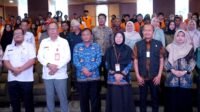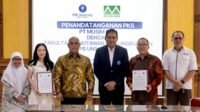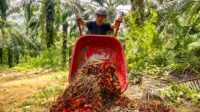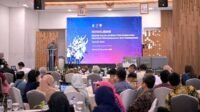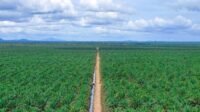PALMOILMAGAZINE, KUALA LUMPUR — The global palm oil industry is entering a new era of sustainability. In his keynote address at the RSPO Annual Roundtable Conference on Sustainable Palm Oil (RT2025), RSPO Chief Executive Officer Joseph D’Cruz emphasized that sustainability is no longer measured by the number of certificates or the size of certified areas, but by real impacts on the ground—from resilient communities and protected forests to empowered smallholders.
“We all recognize that certification is only the first milestone in the sustainability journey. The world is now moving beyond label-based assessments and demanding tangible, measurable results,” D’Cruz told participants in Kuala Lumpur on Monday (November 3, 2025).
According to D’Cruz, RSPO is transitioning from what he called a “badge economy” toward a system that values evidence-based outcomes and measurable impact. To support this shift, the organization is restructuring its member support framework to help companies adapt to the evolving sustainability landscape.
Also Read:
One major step in this transition is the rollout of the new RSPO 2024 Standards, which will come into effect at the end of this month. These include updated Principles & Criteria (P&C) and the Independent Smallholder Standard, while the revised Supply Chain Certification Standard (SCCS) is expected to be endorsed by September 2026.
“These updated standards are better aligned with today’s market demands and regulatory frameworks, especially in protecting forests, upholding human rights, and improving smallholder livelihoods,” D’Cruz explained.
As part of its digital transformation, RSPO has also launched Prisma—a centralized platform for certification, trade, and traceability data. Built in collaboration with RSPO members, Prisma provides real-time, credible data access to support regulatory audits, risk assessments, and sustainability verification at the product level for global brands.
“Prisma is more than a reporting tool—it’s a bridge that helps our members turn regulatory requirements into strategic opportunities, particularly to strengthen market access in Europe and beyond,” said D’Cruz.
Also Read: RSPO Launches Digital Transformation to Strengthen Global Palm Oil Sustainability
In his speech, D’Cruz outlined three strategic priorities for RSPO going forward:
- Expanding the global market for sustainable palm oil.
- Positioning RSPO membership as a strategic advantage for industry players.
- Enhancing the organization’s global operational effectiveness.
To broaden market reach, RSPO will amplify the visibility and value of smallholder production and deepen partnerships in key regions such as China, Africa, the Middle East, and Japan, where RSPO recognition is growing but still holds vast untapped potential.
RSPO also plans to appoint key account managers to better serve its largest member groups and redesign its membership system to deliver greater efficiency and added value.
“We know that membership growth must be matched with improved service quality. Our goal is to ensure that every member feels fully supported,” D’Cruz affirmed.
Also Read: RSPO Hosts RT25 Sustainability in Action Palm Oil Tour in Sabah
Internally, RSPO will review its business model and operational effectiveness, leveraging digital tools to shorten transaction times and optimize talent utilization. As part of this reform, RSPO will soon appoint a Chief Innovation and Operations Officer to accelerate organizational transformation.
“This change isn’t just about technology—it’s about a new way of working together. We’ve heard your feedback, and we’re committed to strengthening the partnerships we’ve built,” D’Cruz concluded.
Through these initiatives, RSPO aims to lead the sustainable palm oil sector into a more transparent, inclusive, and impact-driven future—one that delivers tangible benefits for both people and the planet. (P2)







